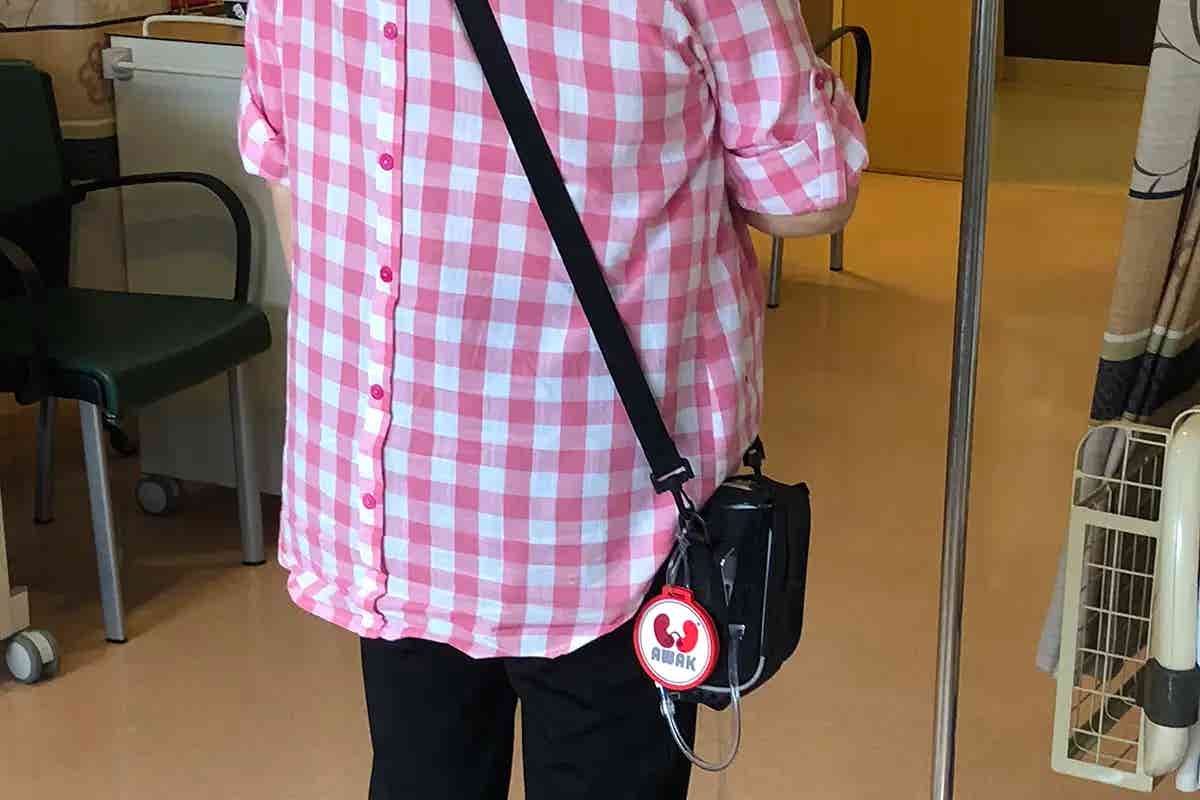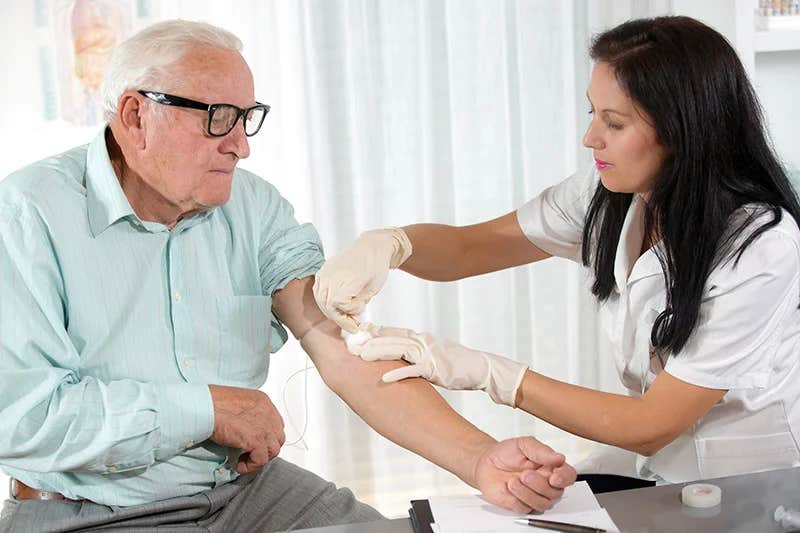Groundbreaking AI technologies fight cognitive decline
Cognitive decline not only carries economic implications but also poses significant risks to individuals’ health and well-being.

[Nov. 20, 2023: JJ Shavit, The Brighter Side of News]
Cognitive decline not only carries economic implications but also poses significant risks to individuals' health and well-being. (CREDIT: Creative Commons)
As the global population continues to age, the challenges associated with cognitive decline are becoming increasingly prominent. Cognitive decline not only carries economic implications but also poses significant risks to individuals' health and well-being.
Conditions like dementia and postoperative delirium have immediate real-world consequences. Fortunately, cutting-edge technologies are emerging to address these challenges. In this article, we explore innovative solutions aimed at detecting, preventing, and managing cognitive decline.
Detecting Cognitive Decline on the Road
In Japan, where nearly a third of the population is over 65, and more than six million people live with dementia, the impact of an aging society on road safety is a growing concern. To address this issue, the UK software company Mind Foundry, in collaboration with the insurance giant Aioi Nissay Dowa Insurance, is pioneering the use of artificial intelligence (AI) tools to detect cognitive decline in older drivers.
This groundbreaking initiative leverages Mind Foundry's machine-learning models and an extensive dataset comprising 9 million miles of road captured through dashcams. Through the analysis of this data, an AI system has been developed to identify subtle patterns indicative of cognitive decline among older drivers. The primary objective is not only to prevent road accidents but also to enable personalized insurance plans based on an individual's cognitive age.
Related Stories:
Brian Mullins, CEO of Mind Foundry, emphasized the transformative potential of this technology: "Traditionally, insurers have relied on factors like the type of car, driver age, and location to predict accident risks and set insurance premiums. Mind Foundry's AI system goes much further by uncovering hidden patterns in the data, helping insurers better understand and underwrite these risks."
The AI system closely examined various driving behavior patterns, such as harsh braking, erratic swerving, and sudden acceleration, among those involved in severe accidents. It then applied similar patterns to a different group of older drivers to identify risk factors that could predict cognitive decline before it becomes a safety concern. Crucially, humans remain integral to the decision-making process, ensuring ethical practices in determining coverage and pricing for individuals.
Preventing Postoperative Delirium
Postoperative delirium (POD) is a debilitating condition that can affect individuals over the age of 60 undergoing surgery. This condition is associated with symptoms such as agitation, cognitive impairment, and increased mortality rates. PIPRA AG, a medtech startup based in Zurich, has developed an AI-based tool named PIPRA to predict the onset of POD in surgical patients.
Funnel plots for the studies involved in the meta-analysis. (A) Mortality; (B) Mechanical ventilation time; (C) ICU time; (D) Hospital days. The distribution was not completely symmetrical around the funnel plot, which suggested the possibility of publication bias. (CREDIT: Frontiers in Cardiovascular Medicine)
John Klepper, CEO of PIPRA AG, shared the motivation behind their innovation, recounting his mother's traumatic experience after surgery. "For days, she saw monsters coming out of the hospital walls and thought the hospital staff were trying to kill her," he said. "While she was fortunate enough to 'recover fully,' she has a type of PTSD from the experience and, to this day, is still terrified of hospitals."
PIPRA's predictive tool relies on AI algorithms that analyze routinely collected clinical information. By identifying patients at higher risk of developing POD, healthcare professionals can take proactive measures to prevent or manage the condition effectively.
By identifying patients at higher risk of developing POD, healthcare professionals can take proactive measures to prevent or manage the condition effectively. (CREDIT: Wiley)
Klepper's vision for PIPRA AG is ambitious: "In an ideal world, I would like to see our solution integrated into healthcare facilities worldwide, creating measurable global impact and improving and saving the lives of millions. POD is one of the biggest and most expensive problems in healthcare, costing 60% more to healthcare providers than diabetes and affecting at least 60 million people worldwide each year. However, it is often ignored."
Proactive Cognitive Fitness Tech
Not all cognitive-fitness technology is reactive. Incisiv, a neurotech company based in Belfast, founded by Cathy Craig, a member of the Royal Academy of Engineering Enterprise Hub, is focusing on monitoring neural fitness using virtual-reality technology.
Incisiv technology brings players back safer by having a more reliable baseline of brain function and quicker by using gamified exercises. (CREDIT: Incisiv)
Incisiv's technology has gained traction in the sports industry, with world-leading sports teams such as the Italian Rugby Federation and the Elite Ice Hockey League adopting it. Unlike traditional concussion assessments that rely on questionnaires or symptom checklists, Incisiv's virtual-reality tests provide a more nuanced understanding of brain health. By measuring players' interactions and information processing at a finer level, the technology offers a comprehensive assessment of cognitive function.
Beyond the sports arena, Incisiv envisions bringing this technology into homes, allowing parents to monitor their children's brain health from a young age. In the context of children's sports, the tech can analyze the brain before and after a game, flagging any discrepancies and ensuring the safety of young athletes.
The convergence of AI, medical technology, and neurotech is ushering in a new era in the fight against cognitive decline. From identifying subtle driving behavior patterns to predict postoperative delirium and monitoring neural fitness, these technologies offer a glimpse into a future where cognitive decline is not only managed but also prevented.
As these innovations continue to evolve, their potential to transform individual lives and alleviate the strain on healthcare systems worldwide becomes increasingly evident. By harnessing the power of cutting-edge technology, we are taking significant strides toward a future where cognitive decline is met with proactive solutions, ultimately enhancing the quality of life for millions of individuals.
Note: Materials provided by The Brighter Side of News. Content may be edited for style and length.
Like these kind of feel good stories? Get the Brighter Side of News' newsletter.
Joseph Shavit
Head Science News Writer | Communicating Innovation & Discovery
Based in Los Angeles, Joseph Shavit is an accomplished science journalist, head science news writer and co-founder at The Brighter Side of News, where he translates cutting-edge discoveries into compelling stories for a broad audience. With a strong background spanning science, business, product management, media leadership, and entrepreneurship, Joseph brings a unique perspective to science communication. His expertise allows him to uncover the intersection of technological advancements and market potential, shedding light on how groundbreaking research evolves into transformative products and industries.



